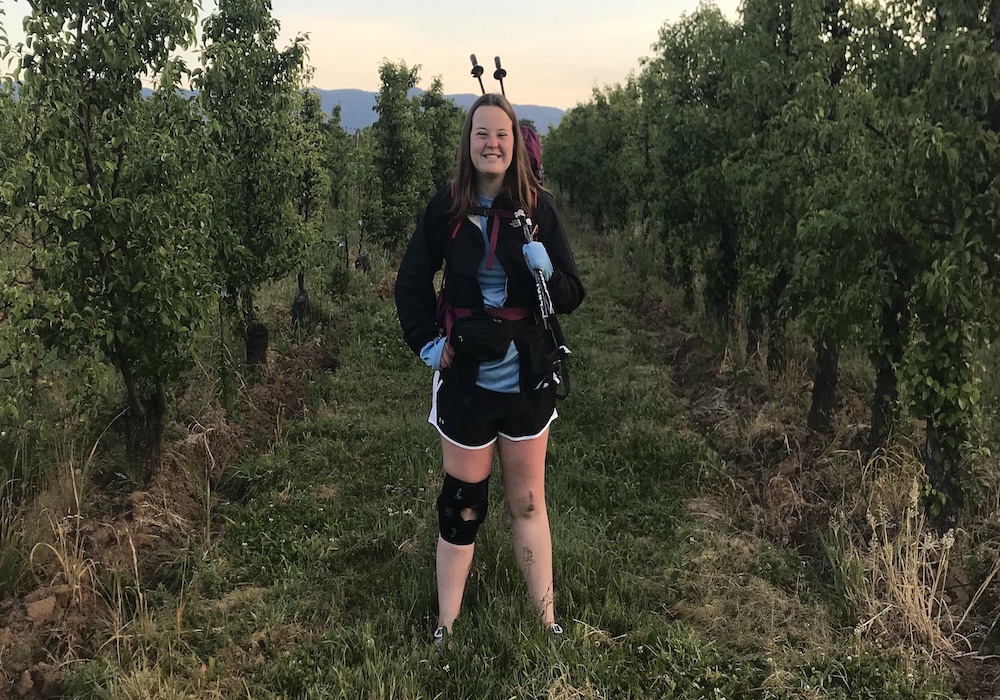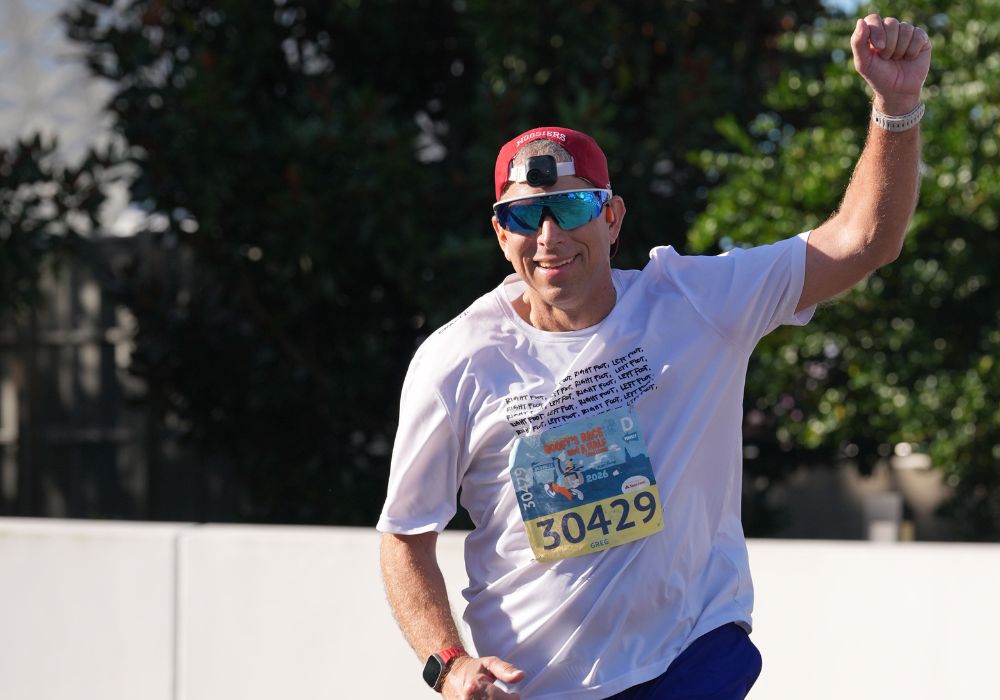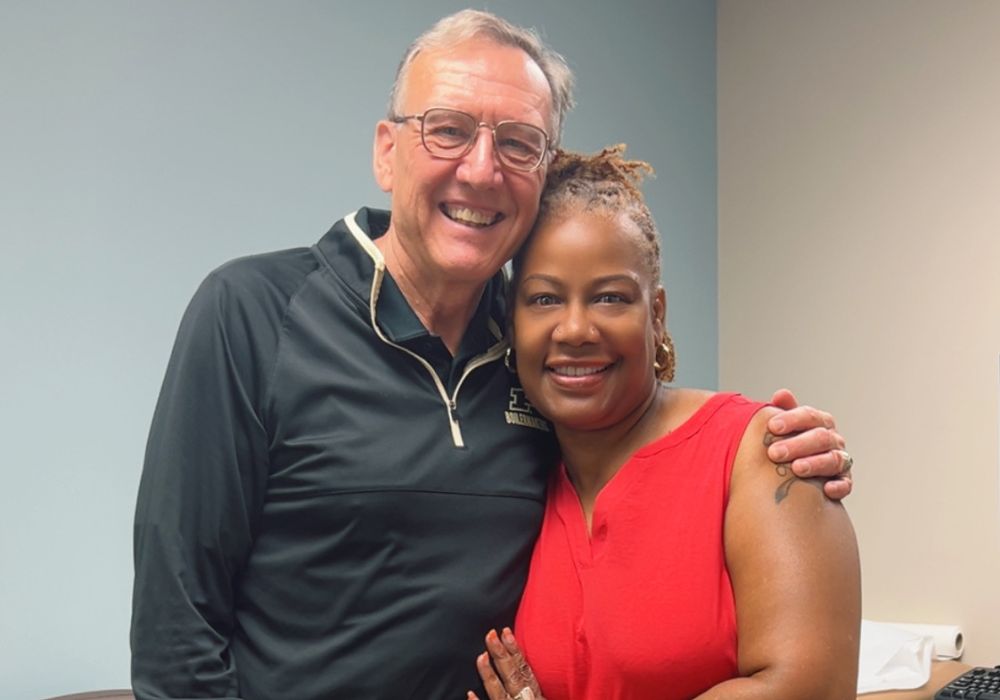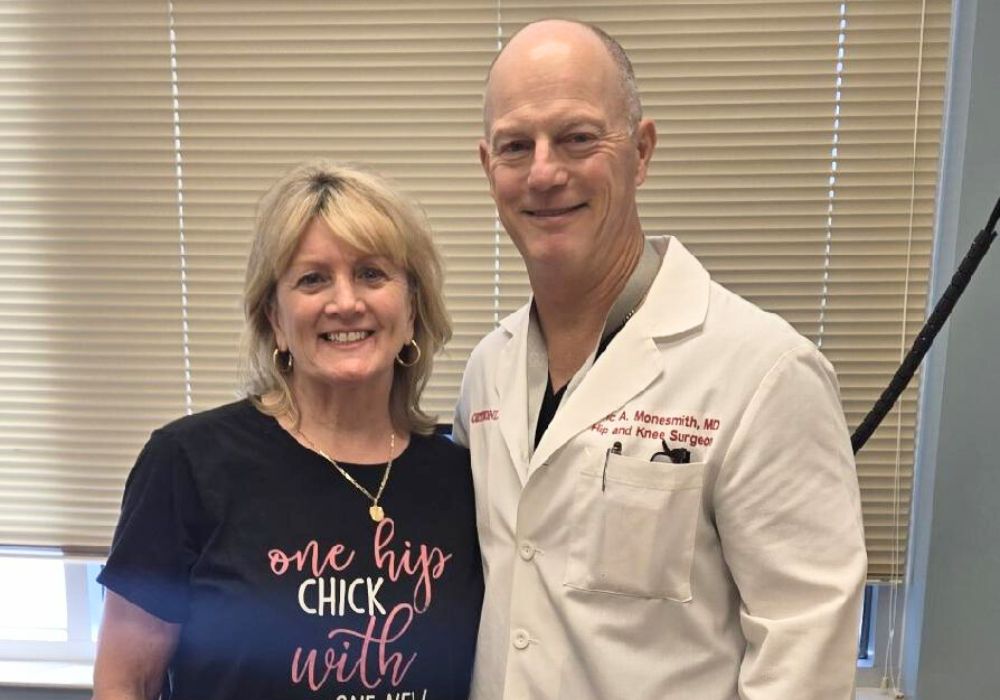Knee dislocations are nothing new for Hillary Carnall. When her left knee dislocated during finals week of her freshman year at the University of Indianapolis, she popped her kneecap back into place and walked to the university’s medical office.
What are the symptoms of cartilage damage in the knee?
Hillary’s knee dislocations began when she was only 11 years old. Chronic knee dislocations (in both knees) were a big part of Hillary’s life. She had constant knee pain, discomfort and couldn’t do normal activities like running.
“Simple actions that humans do every day became difficult over the years,” Hillary said. “I had difficulty being able to run, squat, lunge, jump, walk downhill and walk downstairs. I had to give up running in middle school due to my knee condition. Wearing knee braces and KT tape only did so much. Luckily, I was able to participate in other physical activities such as swimming and cycling.”
The university nurse recommended Hillary visit OrthoIndy. It was a happy accident when she found OrthoIndy cartilage restoration specialist, Dr. Jack Farr.
How long should you wait to see a doctor for knee pain?
“Relief washed over me when I met Dr. Farr,” Hillary said. “For about 8 to 9 years I had been dealing with this chronic issue. His confidence and reassurance gave me hope.”
When Dr. Farr gave Hillary the option to treat her knees surgically, she jumped at the opportunity. He assured her he could fix the problems she was having until she was ready to have a knee replacement.
“I want to live. I want to feel alive and limitless,” Hillary said. “I haven’t had that in a long time. When I asked Dr. Farr what I could do after the surgery he said, ‘Anything.’ I almost cried tears of joy because I hadn’t had that opportunity for nearly 10 years.”
Does a dislocated knee require surgery?
For years, Hillary tried bracing and physical therapy for both of her knees. Because these treatment options were ineffective, Dr. Farr recommended surgery on her left knee. The right knee was a little more complicated. He suggested preoperative therapy to prepare for cartilage restoration at the same time as the left knee was scheduled to be stabilized.
Hillary underwent surgery with Dr. Farr in June 2018. She appreciated that Dr. Farr made a point to make her feel comfortable and explained the surgeries and what was going to be done to her knees.
“Hillary was young, fully rehabilitated, normal BMI and was willing to work hard in therapy post-operation, and she had well defined knee pathologies, each of which we could address,” Dr. Farr said.
How long does it take to recover from knee surgery?
After surgery, Hillary started physical therapy. The main focus was increasing her range of motion and knee strength. Increasing Hillary’s range of motion and strength in her knees was the emphasis when it came to physical therapy. Dr. Farr says Hillary is doing well six months post-operation but resuming full activities will take around 9 to 12 months.
Hillary’s knee surgery recovery has been slow and steady, because so much work was done. She looks forward to doing normal things without the restrictions she has had for the last decade.
“She progressed without complication,” Dr. Farr said. “At her December 2019 office visit, she reported no pain, swelling or patellar instability. She was performing an at home exercise program.”
Before surgery, Hillary’s knees used to bend in and out when she fully extended, but now her knees are stable and stay straight. She is now working on being able to run when she makes a full recovery.
Hillary recommends surgery to anyone if it will improve their quality of life. She’s glad she didn’t get surgery until now because the whole process would have taken time away from being a normal kid. Waiting was the right decision for Hillary so she could live her childhood and find a surgeon she could really trust.
“One more thing: Don’t be ashamed of your incisions!” Hillary said. “It means you are a fighter and have a story to tell.”
Hillary’s knee problems inspired her to pursue a bachelor’s degree in exercise science. She hopes to become a physical therapist one day and help people going through similar circumstances.
To schedule an appointment with Dr. Farr, please call 317.884.5163 or learn more about cartilage restoration at OrthoIndy.
Schedule an appointment
Your well-being is important to us. Click the button below or call us to schedule an appointment with one of our orthopedic specialists. If your injury or condition is recent, you can walk right into one of our OrthoIndy Urgent Care locations for immediate care. For rehabilitation and physical therapy, no referral is needed to see one of our physical therapists.





